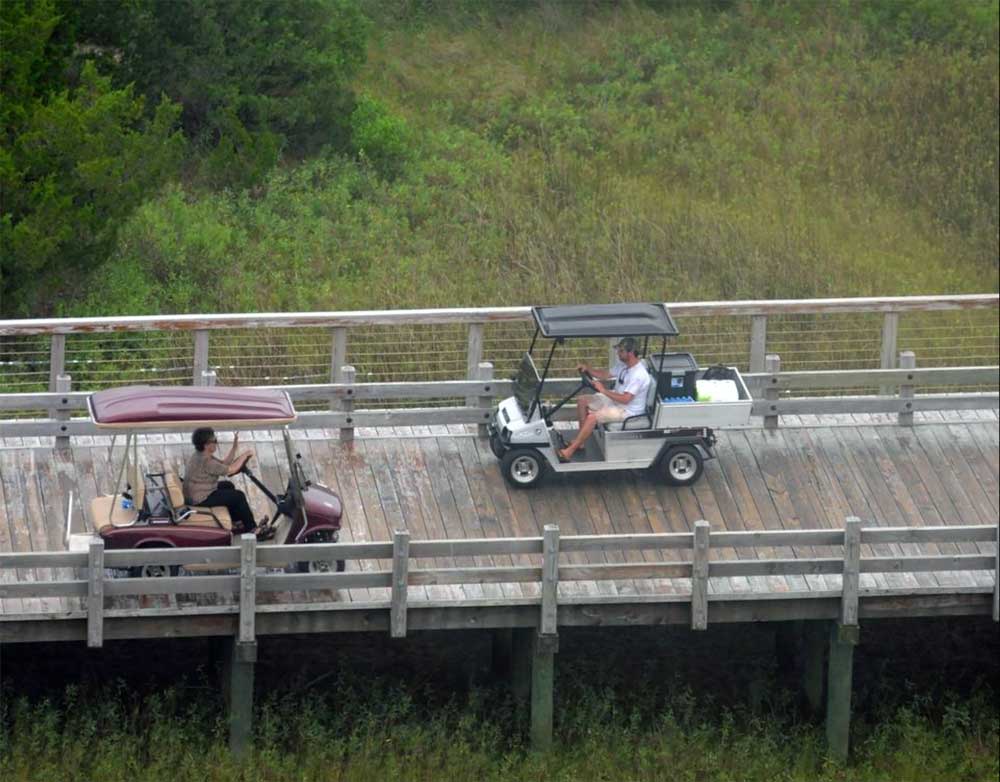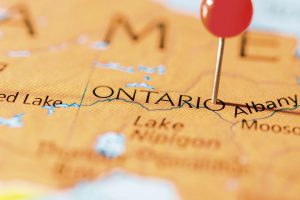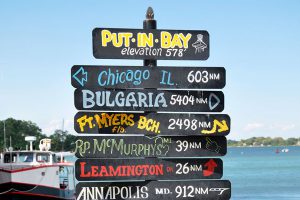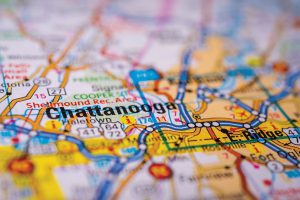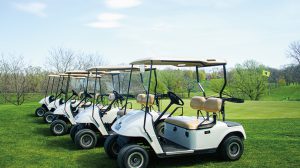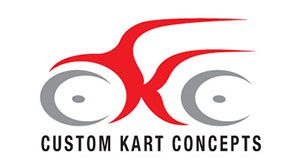Business is booming as golf cart use increases.
By Terry Reilly
SOUTHEASTERN NC – Brierwood Golf Club in Shallotte closed this summer. Echo Farms is set to shut down this fall. And the Masonboro and Belvedere golf courses are for sale. Local golf links may be disappearing or changing hands, but golf carts continue to proliferate in the Cape Fear region. Beach towns are driving demand for these low-speed vehicles along with new residential communities.
Our area reflects a national trend. As of 2013, more than 350 cities and counties have adopted laws that allow golf carts on public roads, according to the International Light Transportation Vehicle Association. Over 75,000 golf carts were sold in the U.S. last year, part of a $1.1 billion global business.
In July, Pete’s Golf Carts started selling golf carts on Oak Island. For decades, the business provided only parts and service – but owner Pete Marley believed the timing was right to start selling carts on the island.
Marley’s hunch paid off. “We’ve sold about a dozen street-legal golf carts in two months – bought by first-time buyers. You’ve got to have a golf cart on Oak Island to go to the beach,” he said.
A street-legal cart requires seat belts, turn signals, headlights, brake lights, windshield wipers and more to meet the N.C. law for low-speed vehicles (LSVs). An inspection, insurance and registration tags makes the process similar to owning a car. Once street-legal, owners can drive on any public road with a speed limit of 35 mph or less.
Marley started tinkering with the carts as a hobby and then went full-time over 30 years ago. His carts sell for $6,500 to $7,500. Golf carts are also popular on Carolina Beach, where over
1,100 carts are permitted by the town, which doesn’t require street-legal carts.
“When they get in a golf cart, there’s an attitude change,” said Jay Antonelli, general manager of Golf Carts of Coastal Carolina on Carolina Beach Road. “People are no longer in a hurry. It’s a fun feeling and a different mindset.”
But it’s not just Carolina Beach fueling Antonelli’s four-year-old business.
“Golf cart friendly communities like RiverLights, Beau Rivage, Tidal Walk and many little hamlets have more people using golf carts for a variety of activities,” he said.
Meanwhile, Coastal Golf Cart Sales, with outlets in several Brunswick County locations, is thriving on sales to Compass Pointe residents.
“It’s a gated community with its own golf cart rules, not regulated by the state. We do a ton of business there,” said Gary Aycock, general manager. Aycock said that 85 percent of customers who buy refurbished golf carts are first time buyers who are northern retirees.
“Coastal Golf Cart and other area companies obtain carts from golf courses when their leases end,” Aycock said. The three-to five-year-old carts are then stripped down to the frame and converted to street-legal carts. “We sell them as ‘refurbs.’ We explain to customers that the carts are not new. Converting a new cart to street-legal standards would cost from $12,000 to $14,000,” he said.
Shawn Harper, manager at Golf Cart Outlet’s Wilmington location, said his business has declined. But it’s not for lack of demand.
“There are definitely more customers today but also more competition. Three competitors have opened in the last few years. As a result our business has slowed down,” he said.
But he said his company’s stores in Southport and Sunset Beach “are selling carts like crazy.”
Southport does not require street-legal carts, but recently tightened permit requirements. Last year, the city issued 34 permits. In the last three months, the city has already processed 70 permits – a rising trend that is expected to continue, Harper said. ❂
